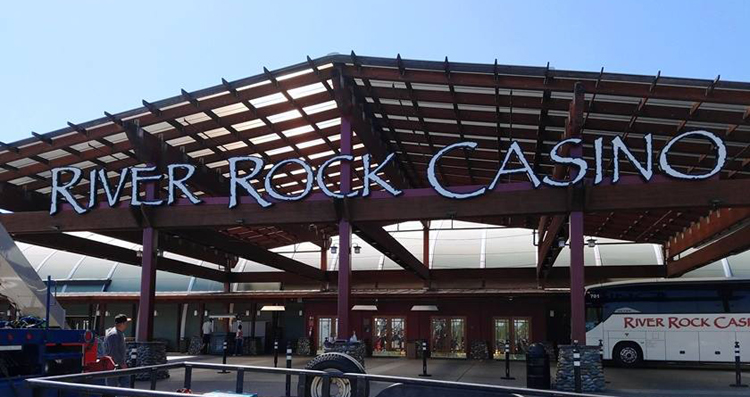On Thursday, River Rock Entertainment Authority, the operator of River Rock Casino located in Geyserville, California, announced that it would offer bondholders cash payments amounting to .30 cents on the dollar in a restructuring of its overdue debt.
After suffering substantial losses due to the opening of the Graton Resort & Casino in 2013, Sonoma County’s oldest tribal casino, which had enjoyed exclusivity since 2002, defaulted on interest payments on $165 million owed to creditors. The casino, operated by the Dry Creek Rancheria Band of Pomo Indians, is offering to pay 30 percent on the principal of what is outstanding and due in 2018, according to The Press Democrat. The operator intends to finance the debt restructuring and settlement deal by borrowing as much as $50 million from an investment firm based in New York City, Benefit Street Partners.
While the deal will only pay creditors a fraction of what they are owed by River Rock, according to gaming analyst Alex Bumazhny, a Fitch Ratings senior director, in typical restructuring deals in similar situations it’s usually “new debt to an existing creditor rather than cash,” so the cash offer could be the safest and best offer. Bumazhny said, “There’s only so much creditors can extract from a casino under stress,” as reported by the news agency. Because Indian tribes do not fit into any of the four Chapters of the Bankruptcy Code, they are quasi-sovereign entities, bankruptcy isn’t an option and also risky for creditors of tribal casinos is the court arena, according to the analyst.
River Rock enjoyed its gaming monopoly in Sonoma County for approximately 11 years before the much larger Graton Resort & Casino opened next to Rohnert Park. Almost immediately upon the rival casino’s opening, River Rock’s revenues were just about cut in half, according to tribal officials who blamed the decline on the new competition; a decline that has remained in the 40 percent range since then, according to what River Rock’s general manager David Fendrick said last year. In an email to the news agency on Friday, Fendrick said that since the initial drop in revenue when the new casino opened, business has leveled off and no further decrease in business has been experienced.
Due to the significant drop in revenues, in order to reduce operating costs, River Rock has had to make a series of cutbacks including decreasing the number of casino employees it had last year to 388 from a high of 600, as well as reducing the previous high of 22 table games and 1,300 slots to the 18 table games and 1,150 slots it had last year.
The casino operator intends to hold a conference call with an “Ad Hoc Holder Group,” the institutional holders of its senior notes, which must approve the restructuring proposal, according tot he news agency. River Rock will need to demonstrate that the majority of its creditors who hold the principal amount of the senior notes are in support of the restructuring in order to obtain financing.



